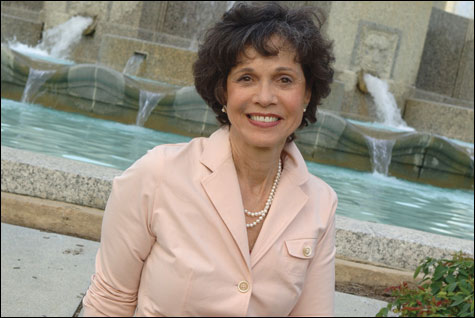
SKEPTIC’S SCREED: Davis argues that when it comes to carcinogens, we’re endangered by an unreasonable burden of proof. |
| The Secret History of the War on Cancer | By Devra Davis | Basic Books | 528 pages | $27.95 |
Even when we’re aware of some level of health risk involved in our mundane daily activities, we tend to ignore it. Whether it’s household cleansers or cellphones, we assume the things we use are safe — notwithstanding all the hints to the contrary. We know we’re supposed to avoid radiation and not have too many X-rays, but we walk around all day with radiation-emitting mobiles plastered to our heads. We’ve been told there are studies that demonstrate cellphones are safe. But epidemiologist Devra Davis would, at the very least, have us be skeptical.Davis is skeptical of lots of things. Early in The Secret History of the War on Cancer, she asks: “Look around and it seems that cancer has become the price of modern life. How did this happen?” She’s not shy about passing out blame — from those who caused to those who cured. She has evidence that links cancer researchers to the tobacco industry and shows that many scientists knew about the risks of asbestos, benzene, and other chemicals long before their dangers were publicized. She also asserts that, for years, both mammograms and Pap smears were improperly administered. And who knew that Donald Rumsfeld had a hand in bringing aspartame to the market?

Some of this information is, however, presented in a long-winded, over-personalized way that limits its impact. It’s not that Davis, who heads the Center on Environmental Oncology at the University of Pittsburgh Cancer Institute (and whose parents died of cancer), isn’t qualified. And her main points are sound, especially her assertion that scientists face a daunting burden of proof — imposed primarily by industry lawyers — when they’re asked to establish that a substance is a carcinogen. This, she says, hinders us from identifying environmental pollutants that may exist in our workplaces, our beauty products, and yes, our personal communication devices. What we don’t know may be hurting us, and despite the dearth of information, Davis wants us to green up our communities, just in case.
“At this point, the absence of epidemiological proof of harm is taken by many to mean that no harm exists. In fact, what it mostly tells us is that proof is hard to come by and may not be achievable at all,” she writes. What lack of evidence really points to is the difficulty of evaluating environmental factors in the health of humans. There are so many things we do every day that might affect our health, and researching them is next to impossible. (Either you depend on people’s honesty, asking them to fill out activity logs and carry around smog meters, sun-exposure charts, and fat tables, or you lock them in a lab and deprive them of family contact for days at a time.) Not to mention that adept spin doctors — even those whom the public trusts to deliver accurate medical information — have been obfuscating for decades. About the “tobacco strategists” Davis writes: “Their goal was simple: confuse people about what scientific evidence shows and keep them wondering whether science can ever answer those questions.”
Where The Secret History falls short isn’t in its ability to tell us where and how we’ve been duped, but in its capacity to inspire. Despite compelling stories and insider details, Davis’s book can read like a laundry list of the many ways in which our health is put in danger. It may do more to scare than to bring about change.